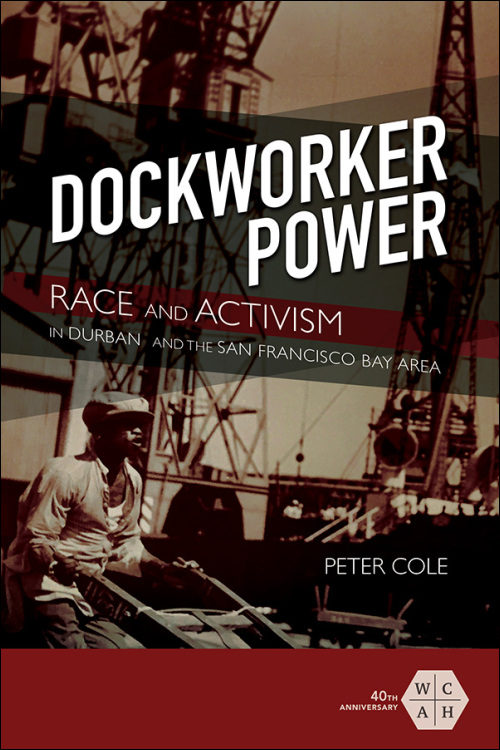AD: How were dockworkers in the Bay Area and Durban able to organize — either formally or informally — in such difficult conditions, where continued employment was in no way certain and unions were not legally protected? Were their tactics similar despite the different contexts?
PC: Dockworkers in these two ports — and countless others across the Seven Seas from Valparaiso to Istanbul to Singapore — have organized to improve their wages, conditions, lives, and world. Before the massive technological change that was containerization, which occurred in the 1960s and 1970s, gangs of men (historically this work was all-male) labored in tandem to load and unload cargo. No one could load a ship alone. Also, the inherently dangerous nature of the work created incredibly tight bonds among dockworkers. Moreover, there was little to no opportunity for dockworkers to move up the ranks into being a ship captain or shipping executive. There was a clear, bright line between bosses and workers, us versus them. Hence, the work process inculcated a collective identity.
Of course, dockworkers in Durban and San Francisco also were different for some obvious reasons and less obvious ones. In San Francisco, and across the United States, workers had the legal right to strike, unionize, and collectively bargain from 1934 onward. Durban dockers, who were all black Africans (mostly Zulus, some Pondos) were denied rights as workers due to massive racism that became codified after WWII as apartheid. When SF and other Pacific Coast dockworkers shut down the entire coast, in the summer of 1934’s “Big Strike,” they had tremendous solidarity but they also had legal rights along with the most pro-worker president in US history, FDR. He and Frances Perkins, secretary of labor and the first-ever woman in a presidential cabinet, pressed employers to accept the new normal. Additionally, even in the Bay Area, dockworkers engaged in repeated short, unannounced work stoppages, sometimes called “quick strikes,” to press shippers. Like dockers, seafarers, and other workers in transport have long known, they possess power because of that well-known saying, “The ship must sail on time,” as well as another familiar one, “Time is money.” Literally every minute, every hour, every day that cargo doesn’t move, some company is paying extra.
